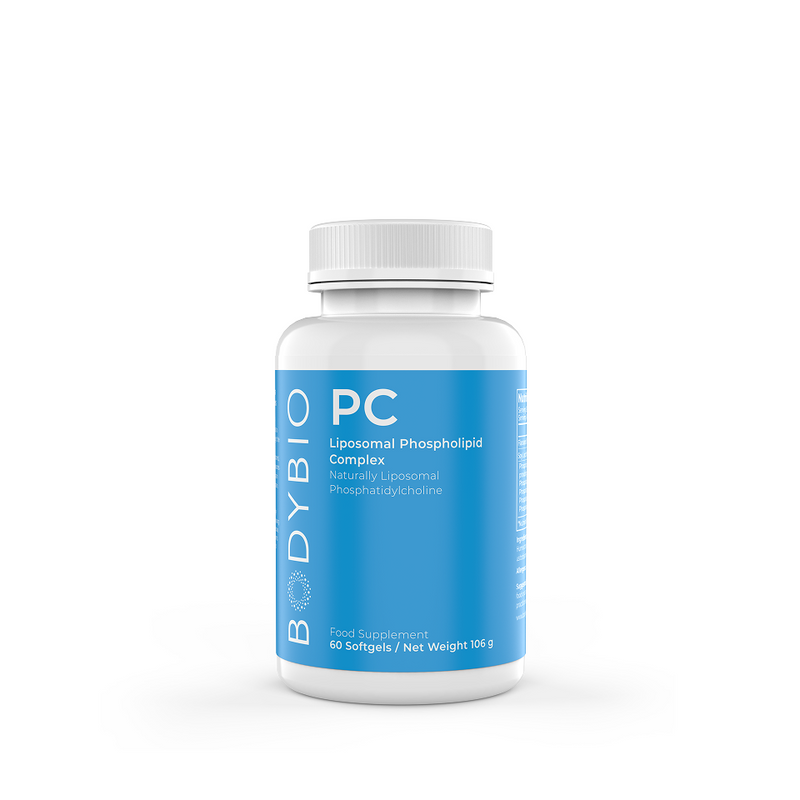ADHD Supplements: Effective Adderall Alternatives for Focus, Learning, and Mood
Key Takeaways:
Key Points:
- ADHD is a neurological dysfunction caused by imbalances in dopamine and norepinephrine in the brain. Other factors contributing to ADHD may include poor gut health, low nutrient intake, dysfunctional sleep, and not exercising enough.
- With the recent Adderall shortage, both ADHD-diagnosed adults and parents of children with ADHD are looking for alternative therapies.
- Alongside appropriate diet, exercise, and lifestyle modifications, supplements for ADHD may be able to address the root causes behind ADHD and support brain health.
- Some supplements for ADHD include omega-3 fats (fish oil), phospholipids such as phosphatidylcholine and phosphatidylserine, vitamin D, magnesium, and zinc.
As the recent Adderall shortage continues, most news outlets and media attention are focused on the supply chain issues and manufacturing delays behind the shortage. The main question seems to be, “How did this happen, and how can we fix it?” (And, “Who can we blame?”)
But perhaps there’s another, even more pertinent question we can ask. How about, “How can we help kids and adults with ADHD without relying on pharmaceutical medications?” “What alternative treatments exist for ADHD?” These are the questions we’re interested in.
Let’s take a look at the root causes and mechanisms underlying ADHD, why stimulants are commonly prescribed, and how natural supplements for ADHD may be able to provide alternative treatment and support overall brain health.
What Causes ADHD Symptoms?
Attention Deficit Hyperactivity Disorder is typically diagnosed in early childhood and is characterized by inattention, hyperactivity, restlessness, and impulsivity, which makes participating in everyday learning and social interactions more difficult for both the child and those around them.
Adults with ADHD may face similar struggles focusing at work or school, have difficulty maintaining close relationships, and may be more prone to negative coping behaviors like gambling and substance addiction.
The CDC currently lists a few potential root causes, such as:
- Brain injury
- Exposure to environmental toxins, such as lead or mercury
- Alcohol or tobacco use during pregnancy (more toxin exposure)
- Premature birth and low birth weight
Genetics may also play a role, but environmental and psychosocial factors are more likely to manifest the condition. Whatever the initial root cause or combined root causes at the onset of ADHD, the current consensus is that an ongoing imbalance of the neurotransmitters dopamine and norepinephrine drives the symptoms of ADHD.
Knowing an imbalance of neurotransmitters is at play, additional factors to consider might include:
- Gut health status
- Vitamin and mineral status
- Daily screen exposure
- Sleep quality
- Diet
- Exercise
All of these factors impact neurotransmitter production and distribution in the brain and body. If you or your child have been diagnosed with ADHD, it may be a good idea to consult a functional healthcare practitioner that can help you evaluate these areas.
Why Are Stimulants Prescribed for ADHD?
Stimulant medications like Adderall essentially stimulate the brain to make more dopamine and norepinephrine, reducing ADHD symptoms and activating the executive functions of the prefrontal cortex (discernment, decision-making). Certainly, these medications have been helpful for many, but they don’t come without their share of risks and side effects.
Possible Side Effects of Stimulant Medications
Side effects of stimulants like Adderall include low appetite, difficulty sleeping, irritability, and increased blood pressure and heart rate in certain patients.
Children may also be susceptible to reduced height and weight gain (partly due to low appetite). And of course, these medications do not address the root cause(s) of ADHD symptoms, so stopping the medication means symptoms will return, possibly worse than they were previously.
Natural Supplements for ADHD
In addition to good diet and lifestyle practices, vitamins, minerals, and other supplements may be helpful for those with ADHD to address root cause imbalances.
Omega-3 fats for ADHD
Research has tied low levels of omega-3 fats, including EPA and DHA, in children with ADHD compared to controls of the same age. Balancing omega-3 levels can support brain health and lower inflammation, so it makes sense that they would help reduce ADHD symptoms.
In addition to consuming fatty fish like salmon, a high quality fish oil supplement can supply omega-3 fatty acids, as can a non-toxic, non-oxidized flaxseed oil as a plant-based version (found in BodyBio Balance Oil).
Sunflower Lecithin for ADHD
What is sunflower lecithin and why all the buzz around it? Sunflower Lecithin is one supplement that has gained popularity as a source of phospholipids and choline for brain health and cellular support. The problem is that most of these lecithin supplements are low-quality and not balanced with the correct ratio of phospholipids to heal your cell membranes (including neurons!).
BodyBio PC contains four forms of phospholipids, including phosphatidylcholine and phosphatidylserine, for targeted and effective brain support at the highest quality and purity available. Phospholipids also support healthy detox pathways, targeting some of those root cause environmental toxins like heavy metals in the brain.
Note: Our phospholipid complex is derived from purified soy lecithin but no soy proteins remain in the final product.
Vitamin D for ADHD
Vitamin D is an essential nutrient that most people don’t get enough of from diet and sun exposure. Vitamin D supports neurotransmitter synthesis, including dopamine and serotonin, as well as cognition, immunity, and your gut microbiome. In fact, vitamin D receptors are found on every cell in your body, so it plays a role in just about everything. That’s why it’s so important to supplement!
If you’re completely new to supplements, taking 5000 IUs of vitamin D is a great starting point to begin to heal your ADHD symptoms and likely see other benefits in immunity and gut health. Just make sure you get a high quality supplement packed with MCT or olive oil.
Magnesium for ADHD
Magnesium is an essential macromineral that most people are deficient in due to our depleted farming soils and high stress demands of a busy life. It is also used in neurotransmitter regulation and activates vitamin D, so you want to make sure you’re getting enough in order to optimize brain health. Magnesium is also known as a calming mineral and can help with ADHD symptoms like hyperactivity, restlessness, and poor sleep.
BodyBio Liquid Magnesium is easy to add to any beverage for kids and adults alike.
Zinc for ADHD
Zinc has been classified as a dopamine reuptake inhibitor, meaning it allows for more dopamine availability in the brain. Low zinc levels are also related to low melatonin and serotonin production. Supplementing zinc may be able to help regulate the brain and improve sleep in those with ADHD.
Add BodyBio Liquid Zinc to any beverage of your choice for easy mineral supplementation.
L-Tyrosine for ADHD
L-tyrosine is an amino acid and precursor to the neurotransmitters dopamine and norepinephrine, helping to increase production in the brain. While L-tyrosine seems to be more effective for some patients than others, it’s worth a try if you’ve already got some of the basics down (exercise, vitamin D, magnesium, zinc, phospholipids) and are still experiencing ADHD symptoms.
ADHD Supplements Are Brain Health Supplements
In some ways, it’s almost more beneficial to think of “supplements for ADHD” simply as another way to support your overall brain health. If the symptoms of ADHD are signs of a brain with too many demands and not enough resources, we can provide the additional resources it needs (vitamins, minerals, phospholipids, etc.) through supplementation and a healthy diet and lifestyle. More often than not, the brain is able to correct itself when provided with the right tools and support.
Try BodyBio PC for better focus, concentration, and healthy brain cells.
Mechler, K., Banaschewski, T., Hohmann, S., & Häge, A. (2022). Evidence-based pharmacological treatment options for ADHD in children and adolescents. Pharmacology & therapeutics, 230, 107940. https://doi.org/10.1016/j.pharmthera.2021.107940
Healy-Stoffel, M., & Levant, B. (2018). N-3 (Omega-3) Fatty Acids: Effects on Brain Dopamine Systems and Potential Role in the Etiology and Treatment of Neuropsychiatric Disorders. CNS & neurological disorders drug targets, 17(3), 216–232. https://doi.org/10.2174/1871527317666180412153612
Patrick, R. P., & Ames, B. N. (2015). Vitamin D and the omega-3 fatty acids control serotonin synthesis and action, part 2: relevance for ADHD, bipolar disorder, schizophrenia, and impulsive behavior. FASEB journal : official publication of the Federation of American Societies for Experimental Biology, 29(6), 2207–2222. https://doi.org/10.1096/fj.14-268342
Hemamy, M., Pahlavani, N., Amanollahi, A., Islam, S. M. S., McVicar, J., Askari, G., & Malekahmadi, M. (2021). The effect of vitamin D and magnesium supplementation on the mental health status of attention-deficit hyperactive children: a randomized controlled trial. BMC pediatrics, 21(1), 178. https://doi.org/10.1186/s12887-021-02631-1
Kozielec, T., & Starobrat-Hermelin, B. (1997). Assessment of magnesium levels in children with attention deficit hyperactivity disorder (ADHD). Magnesium research, 10(2), 143–148.
Effatpanah, M., Rezaei, M., Effatpanah, H., Effatpanah, Z., Varkaneh, H. K., Mousavi, S. M., Fatahi, S., Rinaldi, G., & Hashemi, R. (2019). Magnesium status and attention deficit hyperactivity disorder (ADHD): A meta-analysis. Psychiatry research, 274, 228–234. https://doi.org/10.1016/j.psychres.2019.02.043
Granero, R., Pardo-Garrido, A., Carpio-Toro, I. L., Ramírez-Coronel, A. A., Martínez-Suárez, P. C., & Reivan-Ortiz, G. G. (2021). The Role of Iron and Zinc in the Treatment of ADHD among Children and Adolescents: A Systematic Review of Randomized Clinical Trials. Nutrients, 13(11), 4059. https://doi.org/10.3390/nu13114059
Dodig-Curković, K., Dovhanj, J., Curković, M., Dodig-Radić, J., & Degmecić, D. (2009). Uloga cinka u lijecenju hiperaktivnog poremećaja u djece [The role of zinc in the treatment of hyperactivity disorder in children]. Acta medica Croatica : casopis Hravatske akademije medicinskih znanosti, 63(4), 307–313.
Harmer, C. J., McTavish, S. F., Clark, L., Goodwin, G. M., & Cowen, P. J. (2001). Tyrosine depletion attenuates dopamine function in healthy volunteers. Psychopharmacology, 154(1), 105–111. https://doi.org/10.1007/s002130000613






